Learning and adjusting in Ghana: this is how we do that
25 April 2023
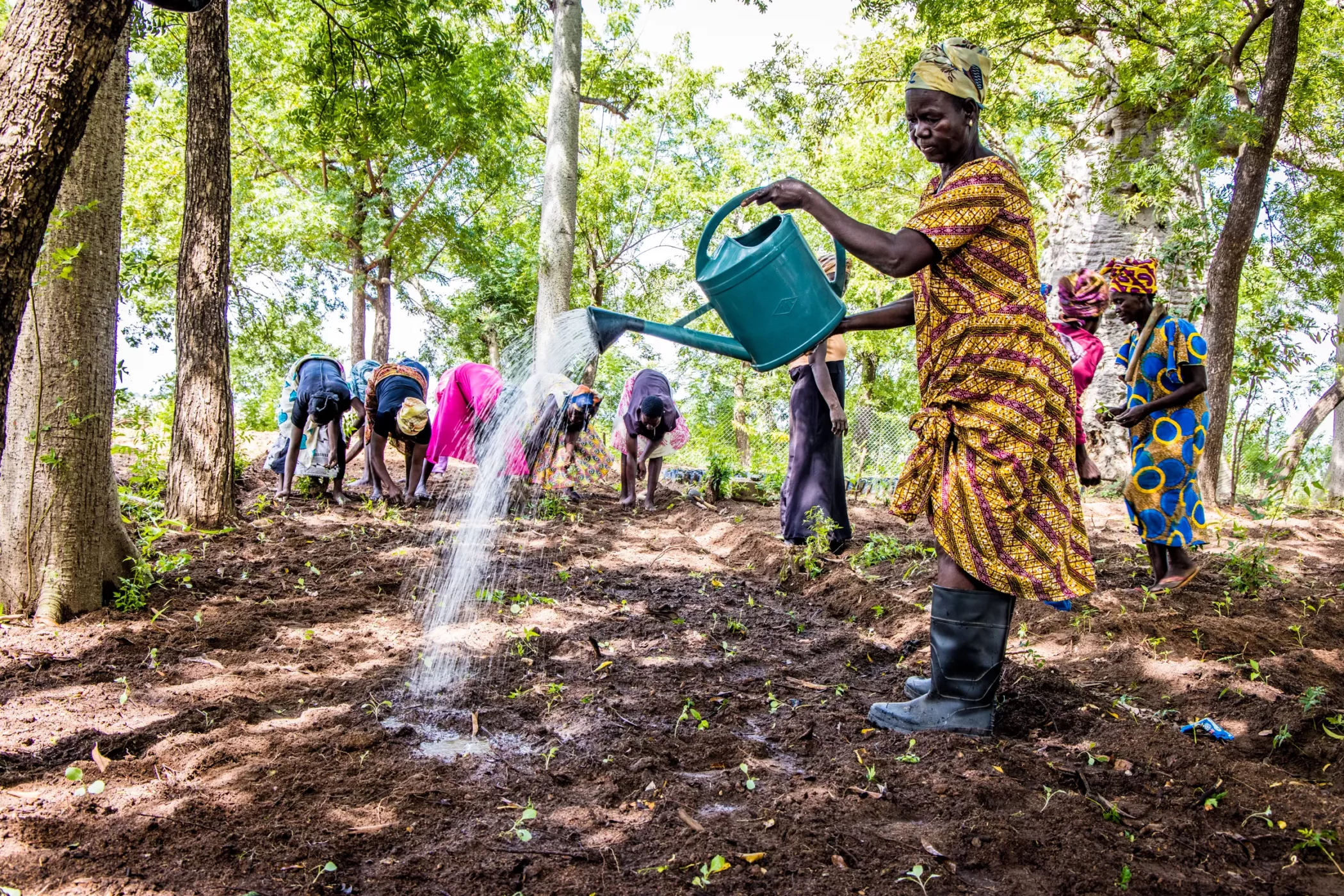
25 April 2023
Planting forests is not a simple matter. In order to make impact, we need to learn from setbacks and make adjustments where necessary. This is what we are doing in Ghana, where the young planting is suffering due to drought and free-ranging goats.
In North-Ghana, we are collaborating with our project partner Tree Aid on the restoration of forests in the Bongo district. This is one of the driest areas in the region, where much forest has disappeared over the years. In combination with the effects of climate change, deforestation is causing heavy erosion and degraded land, where it is difficult to grow food. Moreover, persistent drought and floods in the rainy season result in the loss of many crops.
At the start of the project, we already knew that the conditions here would be challenging. But that also means that we can make an even bigger impact.
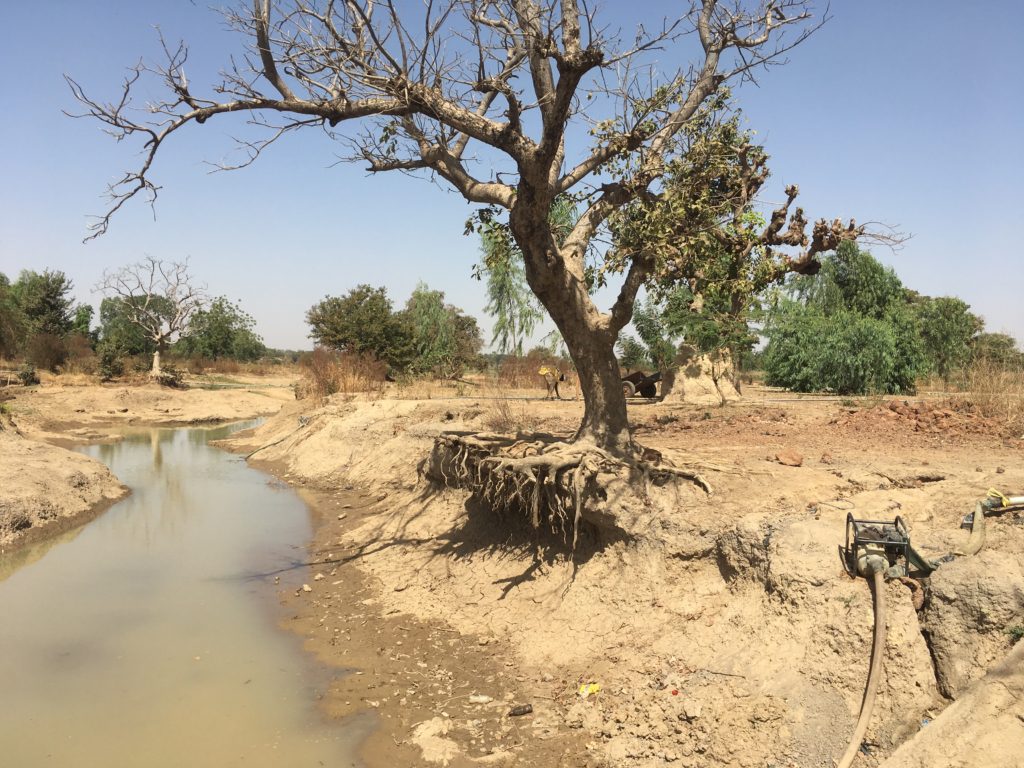
Degradated land in the Bongo district
In Norht-Ghana we work together with residents of 20 villages in the surrounding area. Farmers are being trained in agroforestry: they plant trees on their own land that provide food and income, such as cashew and mango. They also plant trees on communal land, whose right of use is regulated according to local laws.
These rules are very complex. Most villages have (unwritten) rules on the use of land and natural resources. Yet in practice, this is often unclear, which makes it difficult to monitor. Moreover, it requires considerable effort from farmers to supervise and maintain plantations.
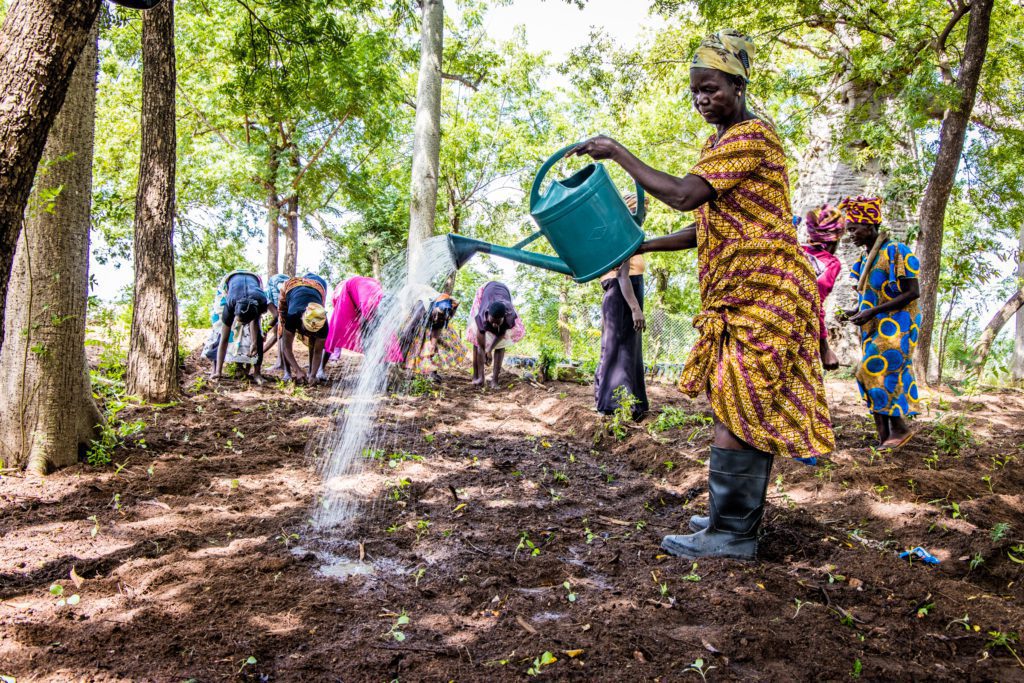
The nursery
For instance, it is important that they ensure the planting is well protected against drought. During our field visit in 2022, we saw that the residents were using the extremely limited supply of water from the wells mainly for their own land and households.
They had to get the water for the planting from a reservoir further away.
This is a time-consuming job, due to the distance and to the amount of water needed. We have therefore made extra budget available to Tree Aid for purchasing tricycles, water tanks and water storage facilities in the villages. This enables the farmers to
give the young trees water every week during the dry season.
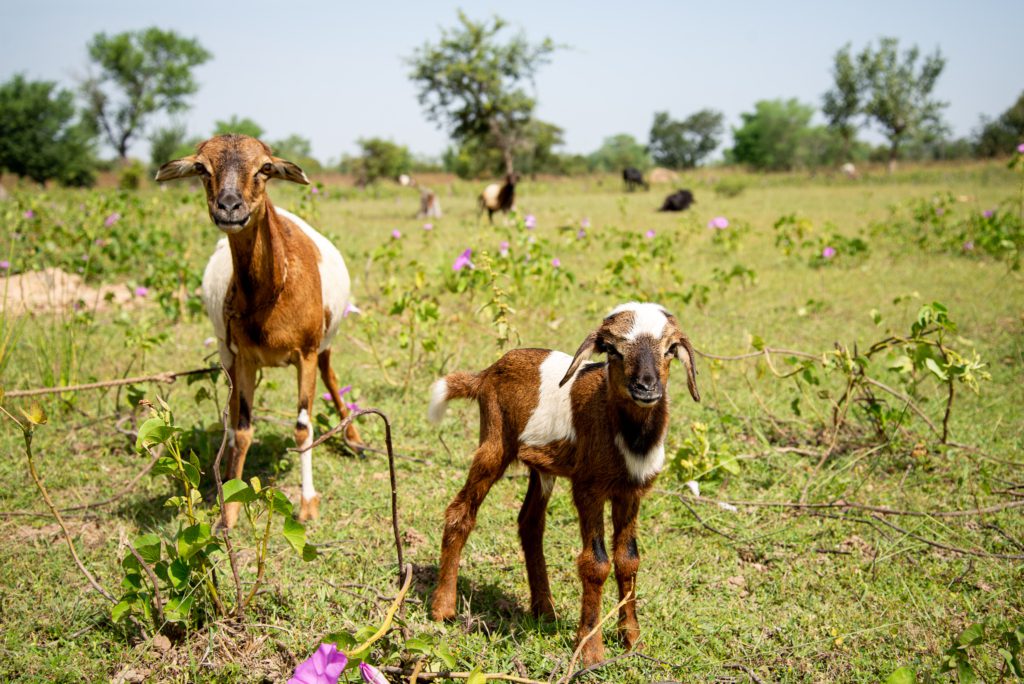
Another concern is the free-ranging goats that form an important part of the local economy. Particularly in the dry periods, when food is scarce, the goats enjoy eating a juicy sapling. So the trees are protected by chicken wire and mud walls. But making and maintaining them is a labour-intensive job, which is not carried out everywhere.
We have therefore also made extra budget available for materials. At our request, dozens of ‘tree islands’ have been created in the project area, enclosed by fences. This enables us to protect around 21,000 trees at once.
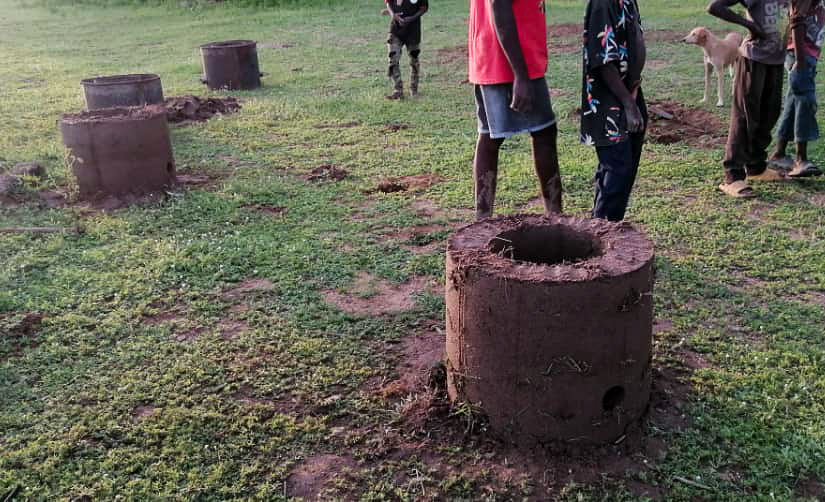
Mudwalls protect the saplings from goats.
Another challenge is the remuneration the farmers receive for their work. These farmers, who are mainly women, help with the cultivation, planting, protection and watering of the young trees. During our field visit, we got the message that the current managing for impact monitoring remuneration for the services provided did not compensate the required time investment.
Alongside their project work, the women are also responsible for running the household and working on the land. These living conditions, which are difficult enough anyway, are worsening due to inflation and poor harvests. So, along with Tree Aid, we have drawn up a plan for extra remuneration, as the farmers’ efforts are essential for the successful implementation of this project.
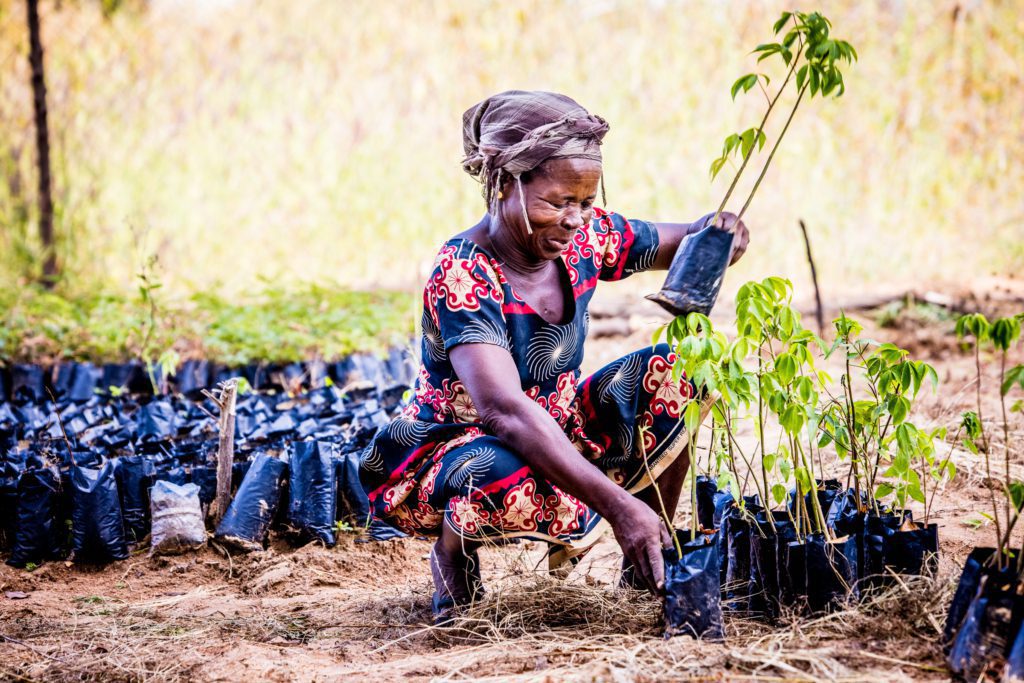
Lead farmer Aeng-bise
Identifying bottlenecks in time and making adjustments where necessary, is a very important part of our work. This is the only way we can make a truly positive impact on the climate, biodiversity and living conditions in Ghana. That is why we work closely with our project partners such as Tree Aid and share our experience and expertise with them. We are also willing to provide additional financial support if that increases the chances of success, as in Ghana.
Risk and impact are inextricably linked. That is why we want to share our experiences of this project. That way, not only ourselves but everyone can learn from it. Moreover, planting trees is not always as simple as it seems: It’s not about planting trees, but about growing trees. We like to be transaparant about that.
Update 2025: Between 2021 and 2024, we were able to plant more than 200,000 trees in Ghana. Not all trees survived the initial planting phase. Therefore, the population replanted some. Meanwhile, many of the farmers have switched to agroforestry and people are still motivated to plant trees. Between 2025 and 2031, we are therefore helping communities plant another 35,000 trees for agroforestry. In addition, we focus on monitoring and protecting the new and existing plantings. This way, we ensure that as many young trees as possible grow into adult trees!